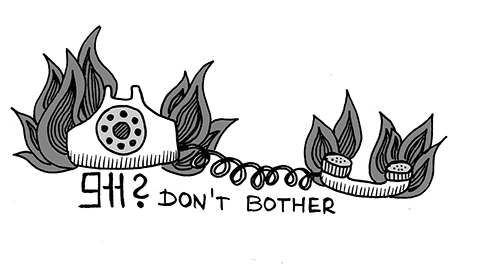Gov. John Kitzhaber is mulling over legislation that would declare a public safety emergency in areas of Oregon where 911 calls aren’t being answered. Thanks to budget cuts, certain counties in Oregon haven’t been able to retain the necessary number of public employees to maintain a fully staffed emergency dispatch system.
When 911 calls go unanswered

Gov. John Kitzhaber is mulling over legislation that would declare a public safety emergency in areas of Oregon where 911 calls aren’t being answered. Thanks to budget cuts, certain counties in Oregon haven’t been able to retain the necessary number of public employees to maintain a fully staffed emergency dispatch system.
Calls to understaffed local police departments are transferred to the state police, but even this measure has proven ineffective.
One Oregon woman whose 911 call went unanswered was eventually assaulted by her ex-boyfriend. This is what happened: The ex-boyfriend approached her door. She called 911, but because the local sheriff’s department wasn’t fully staffed, her call was transferred to the state police.
They told her they had no one to send.
She could offer advice, the dispatcher said, but the caller’s best course of action was to deal with it on her own and basically “call the sheriff back tomorrow.” The dispatcher also “advised” the woman that if the man came into her household, she should simply ask him to go away.
Unfortunately for the woman, asking violent individuals to go away doesn’t work. Astute police work, that advice.
This is absolutely unacceptable. The credo of any police force is “to protect and serve.” This woman certainly wasn’t served in her moment of crisis when she made an emergency call to her local police department, nor was she served when the state police told her they had no one to send.
She definitely wasn’t protected, either, which led directly to her assault.
Slashing budgets is supposed to keep departments afloat—but cutting budgets that provide the essential services of that department? Why not just shut it down completely? If these police departments are reduced so greatly that they are unable to afford to protect and serve their jurisdiction, then their existence is moot. At least without them there would be no false pretense of safety.
There’s no justification for cutting any department that deals with 911 calls and public emergencies.
Regardless of economic problems, you can’t leave people fending for or policing themselves. This failure is like asking criminals to act; it creates an open season for crime. Go ahead, draw criminals to the area! I mean, why not? They can “work” where there is little chance that the victims will be helped until well after the crime is committed and they’ve gotten away.
Another negative outcome of this lack of emergency support is increased vigilantism. If the police can’t protect and can’t serve, people will begin taking drastic measures to protect themselves, their possessions and their loved ones.
While there’s some charm in the notion of civilians trying to give the police a hand by combatting crime, taking the law into your own hands generally leads to less-than-desirable outcomes. Vigilantes don’t have protocol, and a wrongful accusation won’t give you immunity from their “justice.”
Unlike our judicial system, vigilante justice is subjective, which is never a good thing.
Imagining 911 calls going unanswered creates images of victimized people being abandoned, but there are other terrifying outcomes resulting from this funding problem.
Much of the press has ignored the implications of a medical emergency going unanswered. If an individual is seriously injured or has a stroke or heart attack while alone, a 911 call may be all that saves them. If their call goes unanswered, they might not survive. Even if the state police can notify the nearest hospital, the added wait could mean the difference between life and death.
As we endure this era of the American recession and the sad result of sequestration, we must accept that concessions will be made. Budgets are being cut nationwide and across all industries and many government departments.
However, cutting one of the most vital public services in order to balance a budget is morally abhorrent and inhumane. You simply cannot leave people to deal with medical emergencies and crime on their own. That is the definition of abandonment. Surely there are ways to cut costs that won’t put people’s lives on the line.






